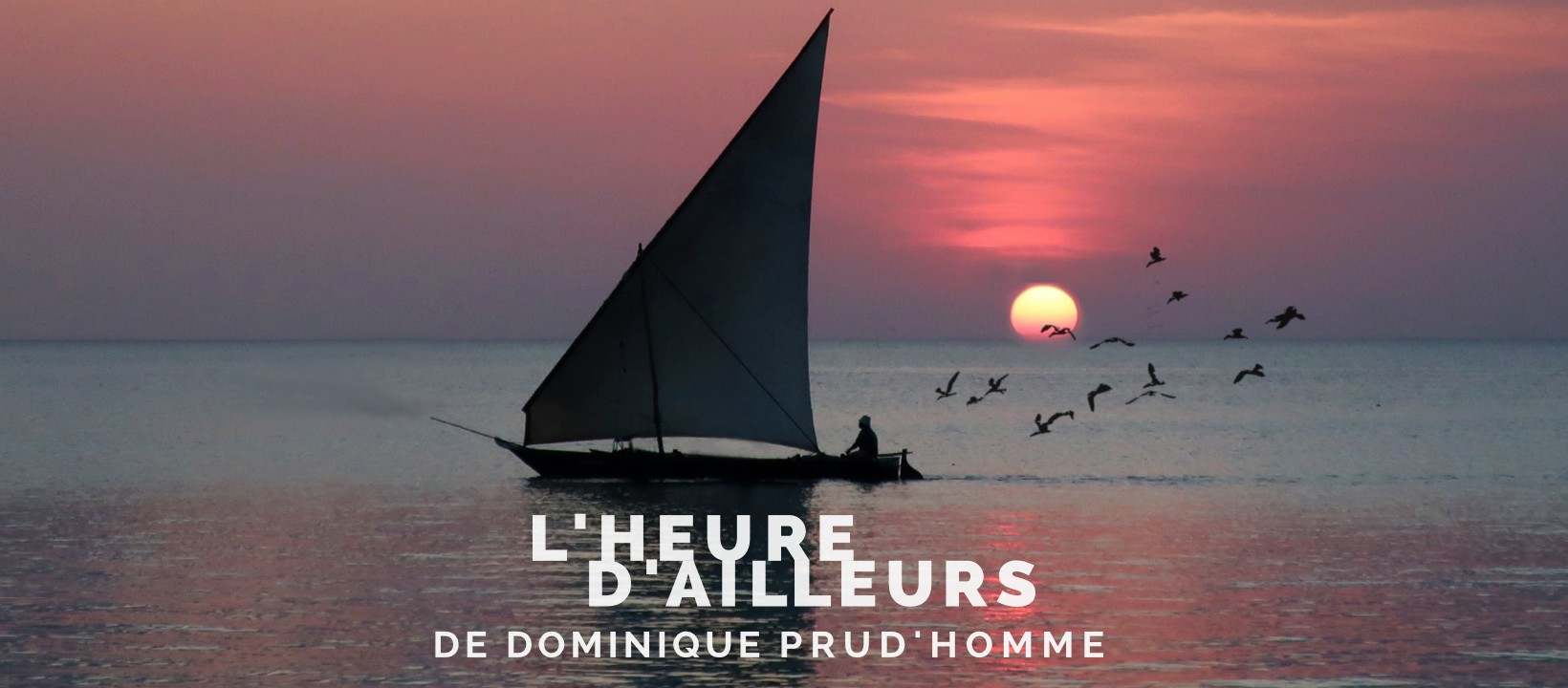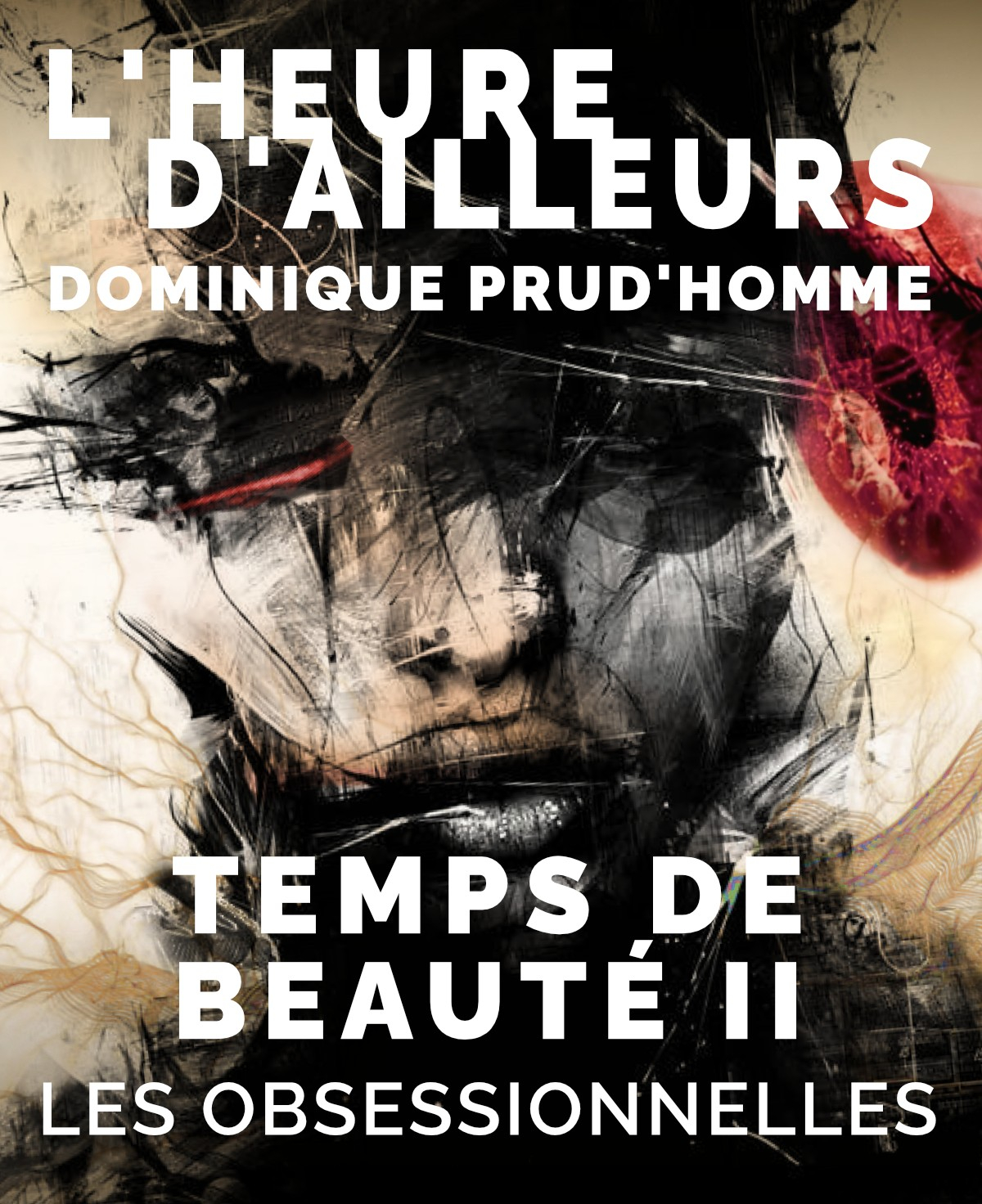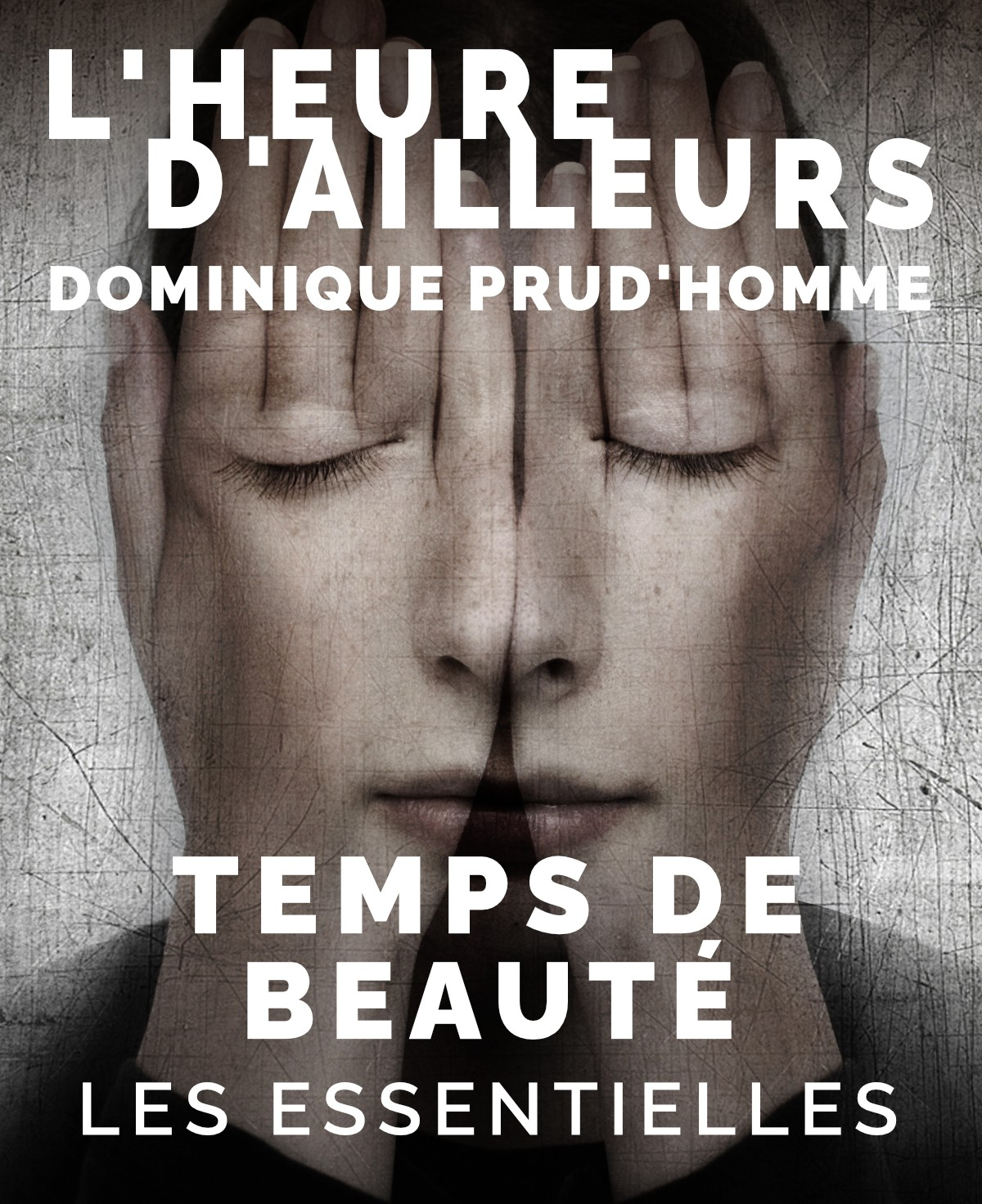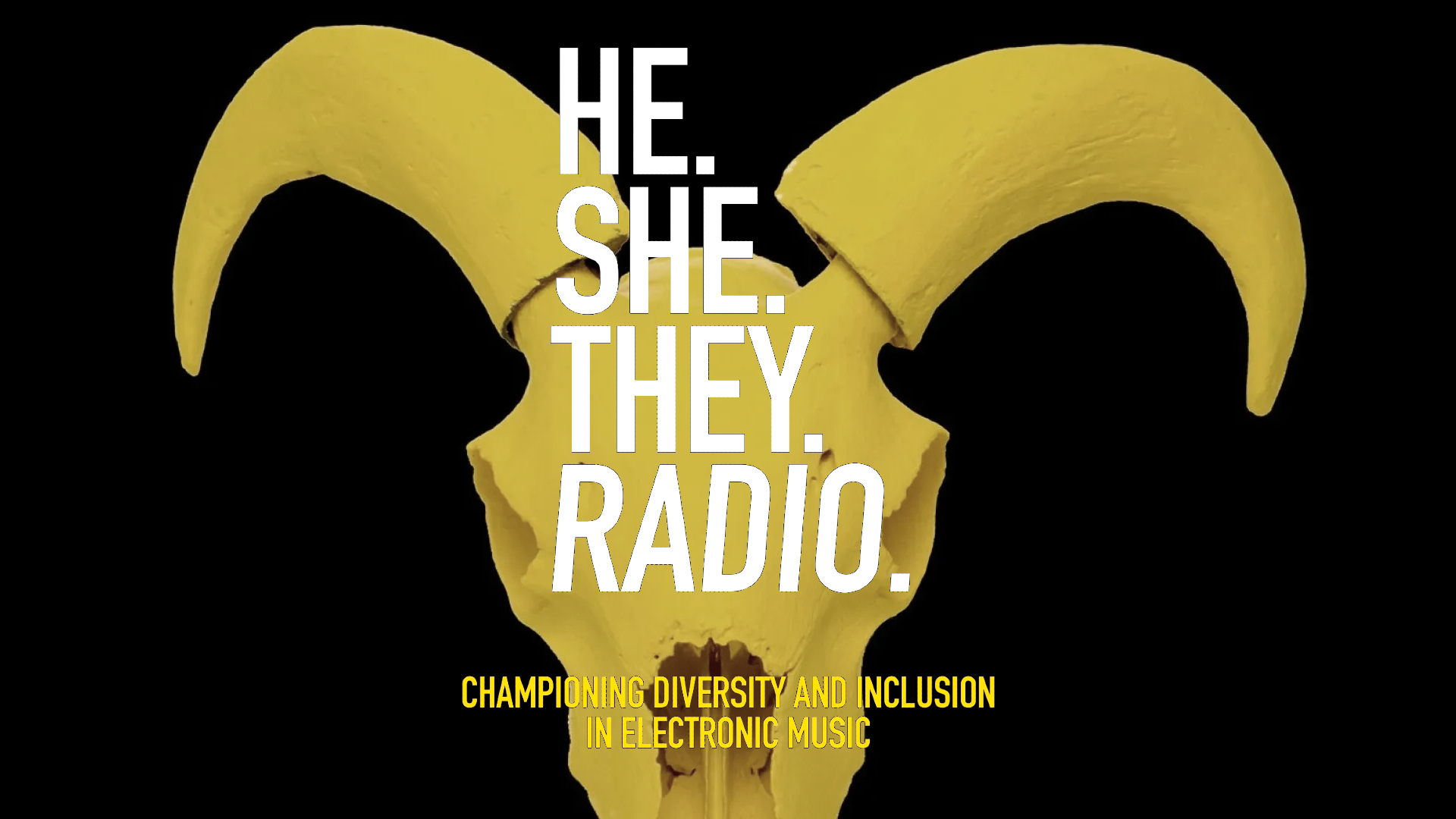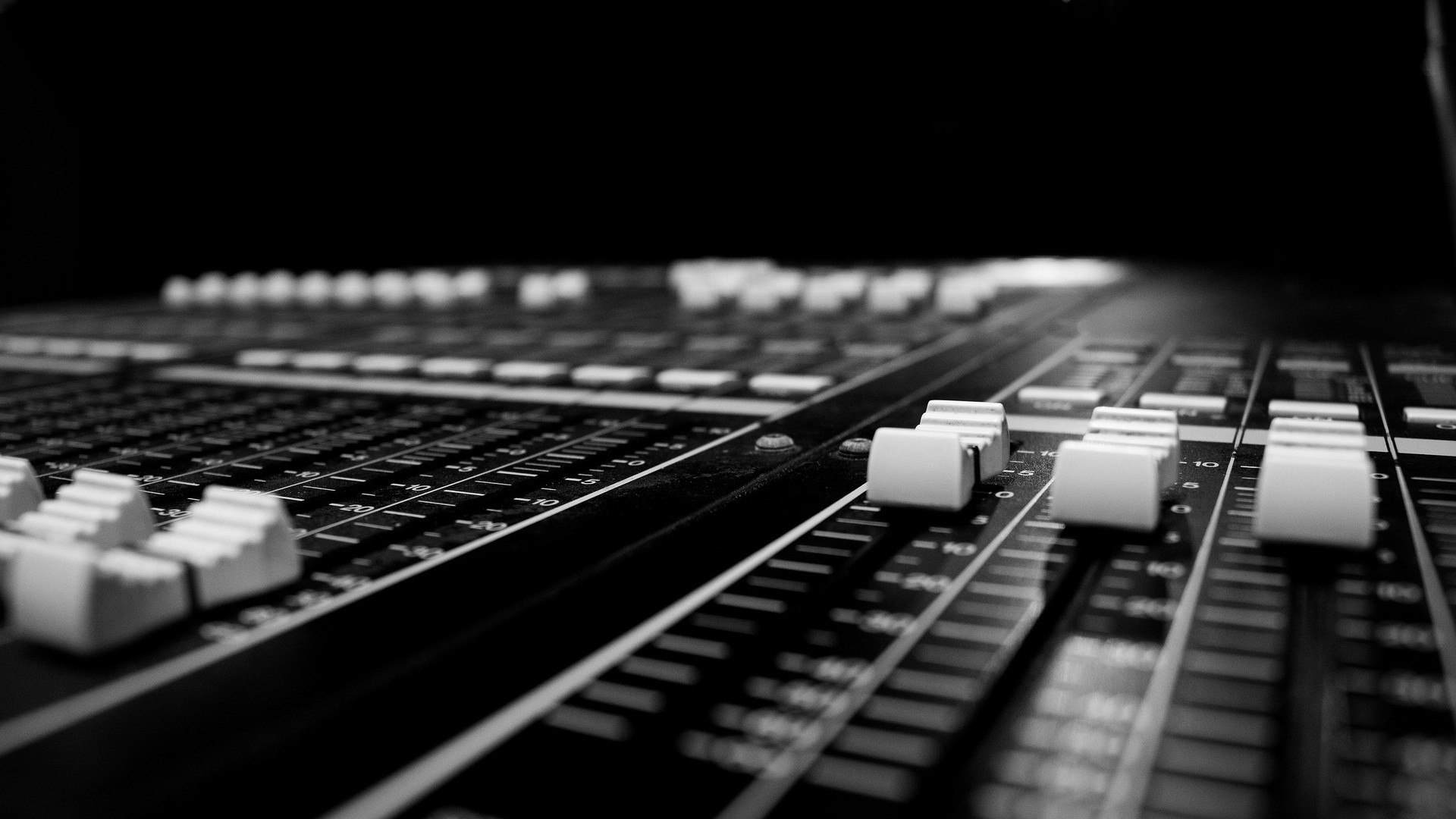L'heure d'ailleurs was born as a little sailboat, drifting from one island to another, from one continent to another, from one culture to another. It's only a vessel…drifting without a compass anywhere the wind blows, without frontiers, without boundaries prejudice nor religious confession. So is the music presented in a one-hour show on UbuntuFM World Radio.
Every THURSDAY 10PM CET (11PM EST)
Definitely not a professional DJ nor a musicologist, Dominique Prud'homme is a storyteller, a marabou, griot, whatever you would call it: what he does is telling musical stories. All with a different theme and so many sounds. Boxes and boxes of vinyls, CDs, cassettes and tapes, all digitized the best he could. A very large library, growing every day.
Our editor Ikenna Okeh recently had a sit-down with Dominique Prud'homme:
Nice to meet you, Dominique. Please tell us about your journey with music. At what stage in your life did you realize that music is the thing for you?
As early as I can remember. My father was an engineer, and my mother, a diplomat. Mine was a colonial and musical family living in Congo. I was introduced to Classical music by my mother, and to Jazz by my father who built me my first radio when I was six. Since that day, I’ve been addicted to music and sounds.
As someone who has travelled the world, what do you have to say about music and the influence of cultures on musical expression? And, is it right to assume that there exists strands within our capacity for musical expression that is common to all the world’s peoples and through which we can communicate across cultural barriers?
It is absolutely right to say that music transcends cultural - and ethnic - barriers. The Blues wouldn’t exist without its African roots. Latin rhythms neither. The influence of Jazz on Debussy, or Fauré, Ravel or Satie is without questioning, and the opposite is a real fact. Travelling to South America was a revelation for me. Tango in Buenos Aires, Rumba or Salsa in the Caribbean opened my world. But the list is too long, or maybe I could write a book on this.
We will also love to know what you have learned from the many places you have lived. What would you consider to be your most remarkable experience in the course of your travels?
Well, the list is long, again. But New Orleans comes to mind. It was a few days after my father passed away, and I was there for business reasons. Walking in the streets, I crossed a marching band singing and playing like I never heard before, dancing and smiling all their hearts. I asked the guy next to me, “what’s the occasion? A wedding?” And he replied, “It’s a funeral, my friend.” You know, ‘boys don’t cry’ usually. But I did, suddenly, thinking of my father.
Out of sheer curiosity, we will love to know about your experience of Africa ?
I was born in Congo. Or almost, since I don’t have any memory before the day I landed in Léopoldville as it was named after our criminal King of Belgium, Léopold II. My parents were colonialists, thinking they were bringing ‘civilization’ to Africa, and they were obviously racist-minded. My best friend was Jackson. Our ‘boy’, as it was called in those times. He was taking care of the house, cooking, and taking me in his arms when my parents were not home. I still have his smell under my skin. All of my friends were African, but were not allowed in our house. So I was out all the time, and already playing in a band (I was the only European boy in it), with hand-made instruments made of wood, rubber and metal strings. So when I had to go back to Belgium … it was like ‘Paradise Lost’.
Your show is being aired on UbuntuFM, and most of our readers and listeners are being introduced to it for the first time. What is the inspiration behind your shows? And how does it feel reaching out with your shows to African listeners and a host of listeners with a taste for African musical content?
I consider it two ways. Firstly, as an honour. You cannot imagine how proud I am to have been considered as a contributor to your station. Secondly, I feel like Back to my Roots. I’ve been travelling, and working extensively in Africa (making documentaries and educational material for the World Bank). Pretoria, Johannesburg, Lobito … you name it. One of my most fantastic memory is Bamako. I was with an Argentinian friend, and we decided to take a walk away from our fancy hotel. And we lost ourselves, completely, for hours. We ended in suburbs, and we were the only Caucasians there. We ended up on the Niger River with kids around laughing out loud, shaking our hands as though we were from another planet. That day I thought of moving there for good. But I had kids back in Brussels, so I didn’t.
Let us talk about the International Jazz Day for which you are a yearly selector. Do you think that there are rooms for improvement for International Jazz Day to not only be representative and accommodating of other cultural societies, but in living up to its expectation of promoting global understanding though music and diplomacy?
Yes. I’ve been invited to join the International Jazz Day selectors tribe a few years ago, on Ness Radio, based in Marrakesh. An honour again, since I’m not exactly a professional DJ, but a passionate one. And my first show was named “Afrik”, you know. Again, my roots. It was a success. With all my respects to my DJ friends, from all over the world, it was a labour of love. Now about improvement, I’m not sure. They are great, and truly believers. We grant each other's freedom in our choices, and mutual respect in those choices. What else could we dream of?
On the issue of music and diplomacy, is it always advisable to assume that musicians and entertainers are enlightened enough to represent the opinion of their indigenous cultural and political units?
That’s a complicated one. I don’t take myself so seriously, although I fought all my life against prejudice, xenophobia, racism, homophobia, everything that ends in “phobia”. I hate those concepts, and that ended in a big battle with my conservative Catholic family especially when I found the love of my life, a Muslim. When I met her, she asked, “you don’t know Baris Manço? Baba Zula?” No, I didn’t. A few months later we married, and today I know now more about Turkish music than she does. She’s not religious, and I’m not either. But we have our differences, cultural, educational … and that is richness.
As a DJ, music enthusiast and a creative who interacts actively with music across cultures, what cultural groups of people do you mostly feature in your shows? And which cultural groups do you consider most artistically expressive such that their music is a true and healthy reflection of their cultural identities?
Everything. I like to define my musical universe as “360 degrees”. You know, at night sometimes I have one of my cats purring in my ear like a Boeing jet engine, and I’m like on a plane in my dreams. The next morning, I’m back in time in East Germany, before the wall came down, listening to splendid Jazz and Rock musicians, totally unknown (that’s my next show, by the way).
Perhaps you can throw some light on some underrepresented musical cultures you have encountered in the course of your journey. What do you advise that these do to bring their musical flavour to world attention? We ask this because here in UbuntuFM we understand that the world is a community and that this community is not yet matured to its full form until every member has advanced to the stage where they can contribute their individual and unique flavour to the whole.
Yes I can. The world is a Community, as you say so rightly. I don’t know exactly why, but I have a tendency to make friends of taxi drivers. So I have a large collection of tapes that they offered me as a gift. I will always inquire: “Hey, brother, what is this music you’re playing?”. North Thailand and that what it’s called “Molam” (I have to do a show about it). It is mainly duets. A man singing his love to a Woman, and the woman responds, “no, you’re not enough for me”. And the guy insists: “but I love you!”. And that, for half an hour. Magnificent, heartbreaking.
Do you have a word for our listeners who will be encountering your music for the first time in these coming weeks?
“Whatever you do, do it well, or not at all, my son.” That was my father’s saying. And those words resonate in my ears still. I’m trying, Dad, I’m trying.
Thank you, Dominique, for gracing this moment and sharing your wealth of experience with us. And thank you for coming on board with your show as a contributor on UbuntuFM. We look forward to a long time of musical entertainment and enlightenment with you.
So do I. This interview made me shaking, sometimes. Remembering all those memories, all those love, and pains sometimes. Ubuntu means humanity, isn’t it? You’re a human, and so am I.
